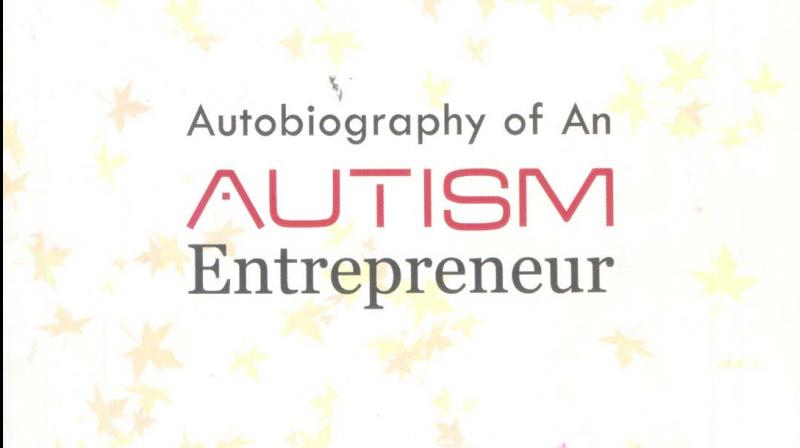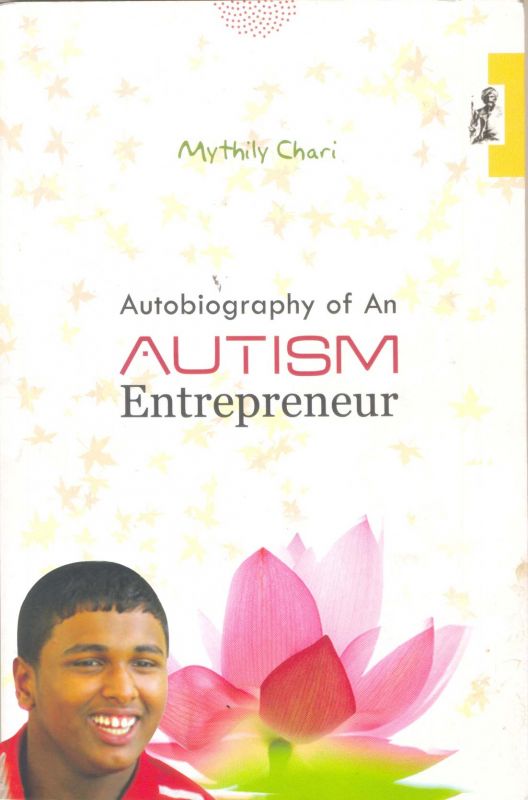Autism as the God of lost and found' after the Dec 2015 Chennai deluge
The first book under review in these columns this week is an unusually self-reflective and emotively evocative kind of an autobiography.

CHENNAI: The first book under review in these columns this week is an unusually self-reflective and emotively evocative kind of an autobiography.
It is the story of Mythily Chari’s passion for understanding and helping people suffering from ‘autism’, through a fresh counter-perspective in contrast to the received notions of a “disorder”, particularly rooted in children’s early brain development that inhibits them from communicating with society at large.
For Mythily, living through the painful vicissitudes of life of a woman hailing from a conservative Tamil Brahmin family living in Kerala and who grew up to become the wife of an Army man, Major C T Chari, and to find her purpose and vocation in life ran ‘parallel’ for most part of her life, until they converged by ‘divine grace’ to carry forward her husband’s constructive legacy. For, as the author puts it, “he transformed me from a Perambavoor Mythily to Mythali Chari”. Thus, this work is as much as about its writer and her days- her irony is a delectable R K Narayan- R K Laxman combo when she says her marriage was fixed while travelling in Grand Trunk (GT) express-, as her coming to grips with ‘autism’ being her life’s mission.
 Autobiography of An Autism Entrepreneur
Autobiography of An Autism Entrepreneur
Interestingly, it is an autobiography that is very minimal on dates. It is apparently to drive home that the process of evolution in life is more important than numbers; for the reader is informed of her childhood timeline only at the end of part-II of her life-story: “Malayalam was my first language at school. I did not know Malayalam typing and had not written anything in Malayalam since I passed out of school in 1965.” From this, one has to infer the historical setting that the author belongs to the immediately post-Independent late-1940s’ generation.
These sociological asides apart, Mythily’s autobiography makes one to really re-think the topography of the ‘autistic spectrum’, after long years of the ‘fire and ice process’ she herself underwent. It is best captured in the author’s own, disarming, candid and deconstructing satire: “I have shi-fted my house 27 times in all. We army wives are the best movers and shakers, we sink roots anywhere, start afresh, sometimes husband away in a field area, sometimes they are on courses, we hold the fort alone. The hardships we endure are not evident to the civilian public, only the pomp and ceremony are projected onto the public mind.”
It is not just jingoistic militarism that is patriotism, as nationalistic hardliners now would want us to see! Thanks to her husband’s help at critical moments, Mythily, could freely network with experts and forge her own initiatives to work with special children-, her first exposure to ‘autism’ was in a helper-boy at a grocery shop back in her Kerala town-, picking up the threads in Delhi, Mumbai, Hyderabad and Chennai, etc. Chari’s army career also enabled her to complete a Masters Programme in ‘Special Education’ from the University of Florida, USA.
However, alongside the scientific and neurological perspectives on ‘autism’, a new perception, a fresh, out-of-the-box approach, was taking shape silently in Mythily’s consciousness, as she hurdled from one stage to another in helping special children join regular schools and comeback to the ‘normal’ as we understand it. The author speaks of inspirations from mystics, mystical traditions including that of the Tamizh ‘Siddhars’, symbolic dreams and even chance meetings with people whom she hardly knew that catalysed this new perception.
There was the element of the ‘miraculous’ as well, as she went along her journey to eventually discover a ‘spiritual approach’ to treating ‘autism’. One such incident that reinforced her faith in prayers, she has narrated, is an amazing story of the ‘God of Lost and Found’. Mythily was to fly to Bengaluru with her brother to see their ailing mother, when he at the airport lost his wallet with a lot of cash. Then one of his accompanying teacher-trainees from Kozhikode told him that if he prayed to ‘Muthappan’ (believed to be the God of Lost and Found things), and “tied a one rupee coin in his handkerchief, Muthappan will recover his purse.”
Though amused, Mythily’s brother obliged and prayed to Muthappan. “Within the next few minutes, a passenger came up from the arrival lounge (below) of Meenakbakkam airport searching for a person who lost a wallet,” writes the author. A year later, Mythily adds, she visited that temple near Kozhikode and made the traditional offering of ‘toddy and boiled eggs to Muthappan’, in fulfillment of their earlier prayer to the ‘God of Lost and Found’.
Later, this ‘lost and found’ metaphor was to rebound on the author far more fiercely, during the December 2015 ‘Chennai Deluge’, when Mythily lost her life-long collection of “books on Special Education, some 1,500 books and copies and photo albums. These could not be saved.” More personal trauma came her way when barely a fortnight after the deluge, on December 16, 2015, she lost her husband Major General Chari, trying to save him, moving him from one hospital to another amid that post-flood havoc that Chennai witnessed.
Later, some six weeks she spent with her grandson in the US, again miraculously, helped her to “find” herself, to come back and retell this life-story of an ‘Autism Entrepreneur’.
KOREA’S ‘TAMIL QUEEN’
The second book under review in these columns this week, ‘Koriyavin Tamil Rani’ by Dr N Kannan (Aazhi Publishers, Chennai), whose early training and research was in Biology and Environmental analytical chemistry in Madurai-Kamaraj University, and who is now Professor at Aimst University in Malaysia, has virtually some explosive stuff.
A meticulously researched and concisely written work in austere Tamil, Dr Kannan seeks to bring out the dazzling connections between ancient Tamil Nadu where Buddhism had flourished (even before the classical Sangam Age) and South Korea. Two thought-strands stand out in this work of his continuing research on the linguistic-cultural-trade and other imbedded ties.
There has been a long-retold legend of an Ayodhya princess, called Queen Huh, who married King Suro of Karak kingdom in South Korea; and thus she had “mothered” a whole new dynasty there and the ‘Kim’ clan of today is believed to have descended from them. Dr Kannan argues very zestfully that the original princess who dared to cross the seas from India is more plausibly a Tamil Buddhist woman from ancient ‘Tamizhagam’, wherein Buddhism alone gave the freedom to its propagators to freely cross the ocean, besides conferring equal status to women. When trade, linguistic and cultural affinities between ancient Tamils and Koreans are quite striking, why Indian historians had ignored this development through Buddhism, he asks.
Dr Kannan reportedly first presented his ‘thesis’ at the World Semmozhi Tamil Conference held at Coimbatore some years back. This has now engaged the attention of a new band of Tamil scholars who see it as a rallying point for “reclaiming the glorious heritage of the Tamils”. There is also a reference to the recent archaeological findings in ‘Keezhadi’ near Madurai, to support the view that Tamil kings with extensive trade links to the Far East were cultural boats too.
Citing similarities between several Tamil and Korean words, the Tamil alphabetical system with that of Korea’s ‘Hangeul’, Dr Kannan also seeks to show in this work how Tamil could have played a key role in the development of the Korean language script. Here is lot of food for thought for a new wave of Tamil culture enthusiasts and scholars. Korea’s ‘Tamil Queen’ does make one sit up.

